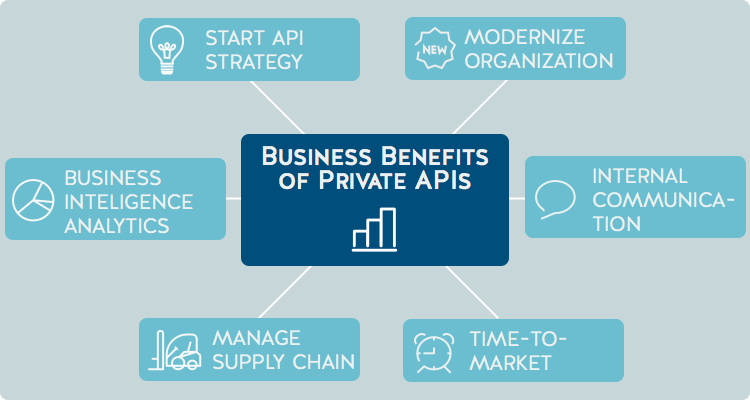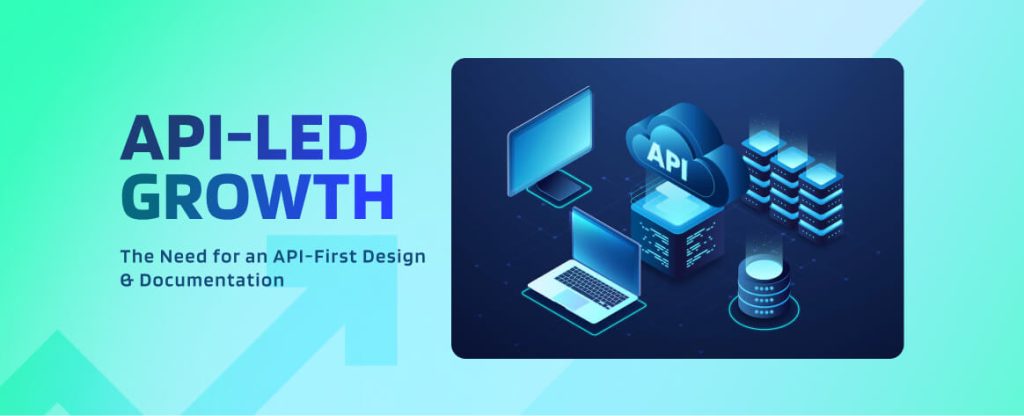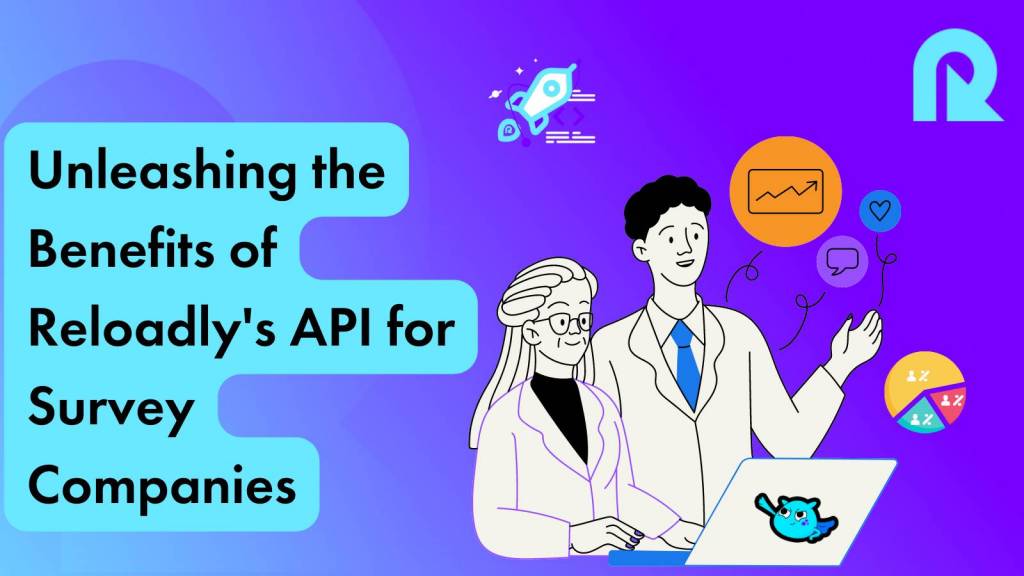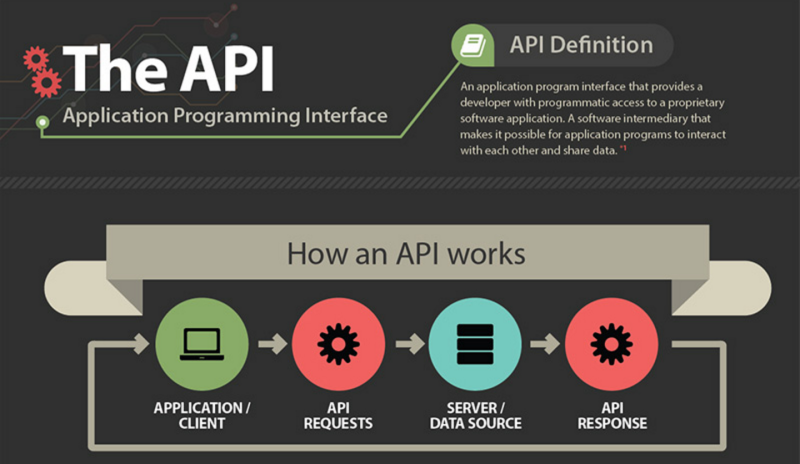Contents
- Streamlining Ordering Process
- Improved Inventory Management
- Enhanced Product Information
- Efficient Pricing Management
- Seamless Integration with Ordering Systems
- Improved Customer Service
- Enhanced Marketing Opportunities
- Increased Sales Efficiency
- Facilitated Collaboration with Suppliers
- Robust Reporting and Analytics
Imagine a world where searching for the right appliance parts becomes a breeze, where efficiency and accuracy are the driving forces behind every transaction. In this article, we will take a closer look at the game-changing benefits of using an API in the appliance parts industry. With this innovative technology, finding the right parts for your appliances has never been easier. Embrace the future and discover how an API can revolutionize the way you shop for appliance parts.

Streamlining Ordering Process
Reduced manual data entry
Using an API in the appliance parts industry can greatly streamline the ordering process. One of the key benefits is the reduction of manual data entry. Traditionally, when placing an order, individuals would have to manually input various details, such as part numbers, quantities, and shipping addresses. This process can be time-consuming and prone to errors. However, with an API, this manual data entry can be eliminated. By integrating the API with your ordering system, the information can be seamlessly transferred, eliminating the need for manual input.
Real-time access to inventory
Another advantage of using an API in the appliance parts industry is the ability to have real-time access to inventory. Without an API, individuals would have to contact the supplier directly to check on inventory levels. This can be a tedious process, as they would need to wait for a response and then manually update their inventory data. However, with an API, this information is available instantly. By connecting your system to the supplier’s inventory database, you can have real-time visibility into the availability of various parts. This ensures that you can always provide accurate information to your customers and avoid any disappointment or delays.
Automated order placement
Lastly, an API allows for automated order placement, further streamlining the process. Instead of manually inputting orders or sending emails, the API can automatically generate and submit orders based on predefined criteria. This not only saves time but also reduces the risk of errors that can occur during manual order placement. With automated order placement, you can ensure that your orders are submitted without delay, increasing efficiency and improving customer satisfaction.
Improved Inventory Management
Accurate real-time inventory tracking
Using an API in the appliance parts industry can greatly improve inventory management. One of the key benefits is accurate real-time inventory tracking. By integrating the API with your inventory management system, you can have up-to-date and accurate information on the availability of different parts. This allows you to efficiently manage your stock levels and prevent any situations of understock or overstock. With accurate real-time inventory tracking, you can make informed decisions regarding purchasing and ensure that you always have the right parts in stock to meet customer demands.
Automated stock replenishment
In addition to accurate inventory tracking, an API also enables automated stock replenishment. When connected to your suppliers’ systems, the API can monitor your inventory levels and automatically generate purchase orders when stock reaches a predetermined threshold. This eliminates the need for manual monitoring and ordering, saving you time and ensuring that you never run out of essential parts. By automating stock replenishment, you can streamline your operations and focus on other important aspects of your business.
Preventing overstock and understock situations
By leveraging the capabilities of an API, you can effectively prevent overstock and understock situations in your inventory management. Overstocking can lead to unnecessary storage costs and the risk of parts becoming outdated or obsolete. On the other hand, understocking can result in lost sales opportunities and dissatisfied customers. With real-time inventory tracking and automated stock replenishment, you can maintain optimal stock levels. The API ensures that you always have enough inventory to meet demand while minimizing the risk of overstock or understock situations. This optimization leads to improved profitability and customer satisfaction.

Enhanced Product Information
Access to detailed product specifications
Utilizing an API in the appliance parts industry offers enhanced access to detailed product specifications. Traditionally, individuals would have to rely on static catalogs or contact suppliers directly to obtain information about specific parts. This process can be time-consuming and may not always provide the most accurate or up-to-date information. However, with an API, you can query the supplier’s database for detailed product specifications. This includes information such as dimensions, compatibility, and technical specifications. By having access to detailed product specifications through the API, you can ensure that you are selecting the right parts for your customers’ needs.
Up-to-date pricing information
Another benefit of using an API in the appliance parts industry is the ability to access up-to-date pricing information. Without an API, individuals would have to manually contact suppliers or check their websites for pricing updates. This can be time-consuming and may not always provide accurate or real-time pricing information. However, with an API, you can integrate your system with the supplier’s pricing database. This allows you to retrieve the latest pricing information directly. By accessing up-to-date pricing information through the API, you can ensure that your pricing is always accurate and competitive.
Availability status
Additionally, an API provides access to real-time availability status of appliance parts. Traditionally, individuals would have to contact suppliers directly to inquire about the availability of specific parts. This can be time-consuming and may result in delays or uncertainty for customers. However, with an API, you can seamlessly retrieve the availability status of parts from the supplier’s database. This enables you to provide accurate and real-time information to your customers. By leveraging the availability status through the API, you can minimize the risk of out-of-stock situations and better serve your customers’ needs.
Efficient Pricing Management
Automated price updates
One of the key benefits of using an API in the appliance parts industry is automated price updates. Without an API, individuals would have to manually update their pricing in their ordering system whenever there are changes from suppliers. This can be a time-consuming and error-prone process. However, with an API, price updates can be automatically synchronized between your system and the supplier’s pricing database. This ensures that your pricing is always up-to-date without any manual intervention. By automating price updates through the API, you can save time and ensure that your pricing remains competitive.
Dynamic pricing capabilities
In addition to automated price updates, an API enables dynamic pricing capabilities. Dynamic pricing allows you to adjust your pricing based on various factors such as demand, market conditions, or customer segments. Without an API, implementing dynamic pricing can be a complex and manual process. However, with an API, you can integrate dynamic pricing algorithms into your system. This enables you to automatically calculate and adjust prices based on predefined rules. By leveraging dynamic pricing capabilities through the API, you can optimize your pricing strategies and maximize your profitability.
Ability to offer personalized pricing
Furthermore, an API provides the ability to offer personalized pricing to your customers. Personalized pricing allows you to tailor prices to individual customers based on their purchasing history, loyalty, or other relevant factors. This level of customization can enhance customer satisfaction and loyalty. Without an API, implementing personalized pricing can be challenging as it requires access to customer-specific data and the ability to update prices in real-time. However, with an API, you can seamlessly retrieve customer data and integrate personalized pricing rules into your system. By offering personalized pricing through the API, you can provide a more personalized and competitive pricing experience for your customers.

Seamless Integration with Ordering Systems
Integrating with e-commerce platforms
One of the major advantages of using an API in the appliance parts industry is the seamless integration with e-commerce platforms. E-commerce platforms play a crucial role in online sales, and integrating an API with these platforms can enhance the overall ordering experience. With the integration, customers can easily browse and search for appliance parts, view detailed product information, and place orders directly on the e-commerce platform. The API allows for real-time syncing of inventory, pricing, and order data between your system and the e-commerce platform, ensuring accurate and up-to-date information for your customers.
Synchronization with customer relationship management (CRM) systems
In addition to integrating with e-commerce platforms, an API can synchronize with customer relationship management (CRM) systems. CRM systems are essential for managing customer interactions and ensuring personalized and efficient customer service. By integrating an API with your CRM system, you can automatically update customer information, order history, and interactions. This enables your sales and customer service teams to have a complete view of each customer, allowing for more personalized and targeted communication. The API ensures that data is seamlessly transferred between your system and the CRM system, eliminating the need for manual data entry and reducing the risk of errors.
Connecting to internal purchasing systems
Furthermore, an API allows for seamless integration with internal purchasing systems. Integrating an API with your internal purchasing system enables the automation of the procurement process. When a customer places an order, the API can automatically generate and submit purchase orders to suppliers. This eliminates the need for manual intervention and speeds up the order fulfillment process. Additionally, the API can update the internal purchasing system with real-time information regarding stock levels, pricing, and order status, ensuring that the internal purchasing team has access to the most accurate and up-to-date data. By connecting your internal purchasing system with the API, you can streamline your operations and improve efficiency.
Improved Customer Service
Faster response to customer inquiries
Using an API in the appliance parts industry can greatly improve your customer service. One of the key benefits is faster response time to customer inquiries. Traditional methods of customer service often rely on manual processes and time-consuming back-and-forth communication. However, with an API, you can automate and streamline the process of handling customer inquiries. By integrating the API with your customer service platform, you can retrieve real-time information on inventory availability, pricing, and order status. This allows your customer service team to provide accurate and timely responses to customer inquiries, ensuring a positive customer experience.
Accurate tracking of order status
In addition to faster response time, an API enables accurate tracking of order status. Without an API, individuals would have to manually check with suppliers and update customers regarding the status of their orders. This can lead to delays and uncertainty for customers. However, with an API, the order status can be seamlessly updated in real-time. This allows both your customer service team and your customers to have accurate and up-to-date information on the progress of their orders. By enabling accurate tracking of order status through the API, you can provide transparency and build trust with your customers.
Order history visibility for personalized support
Lastly, an API provides order history visibility, which can contribute to personalized customer support. By integrating the API with your customer service platform, you can retrieve and display a customer’s order history. This enables your customer service team to have a comprehensive view of a customer’s past purchases, making it easier to provide personalized recommendations, address specific concerns, or offer targeted promotions. Order history visibility through the API allows you to build stronger relationships with your customers and provide a more personalized and tailored experience.

Enhanced Marketing Opportunities
Access to customer data for targeted promotions
Using an API in the appliance parts industry opens up enhanced marketing opportunities. One of the key benefits is access to customer data for targeted promotions. By integrating the API with your marketing automation tools, you can retrieve valuable customer data such as purchase history, preferences, and demographics. This data can then be used to create targeted promotional campaigns that resonate with specific customer segments. The API enables seamless data synchronization between your system and the marketing automation platform, ensuring that your promotions are based on accurate and up-to-date customer information.
Integration with marketing automation tools
Additionally, an API allows for seamless integration with marketing automation tools. Marketing automation tools play a crucial role in managing and executing marketing campaigns efficiently. By integrating an API with your marketing automation platform, you can automate various marketing activities such as email campaigns, personalized recommendations, or loyalty programs. The API enables synchronized data transfer between your system and the marketing automation platform, ensuring that your marketing efforts are based on the latest customer data. By leveraging the integration with marketing automation tools through the API, you can enhance your marketing capabilities and maximize the effectiveness of your campaigns.
Ability to offer personalized recommendations
Furthermore, an API enables the ability to offer personalized recommendations to your customers. Personalized recommendations can significantly enhance the customer shopping experience and increase sales. By integrating the API with your recommendation engine, you can leverage customer data, purchase history, and browsing behavior to generate personalized recommendations for each customer. The API ensures that the recommendation engine receives the most accurate and up-to-date data, allowing for relevant and tailored recommendations. By offering personalized recommendations through the API, you can enhance the overall customer experience and increase customer satisfaction.
Increased Sales Efficiency
Automatic generation of quotes and invoices
Using an API in the appliance parts industry can greatly increase sales efficiency. One of the key benefits is the automatic generation of quotes and invoices. Without an API, individuals would have to manually create and send quotes or invoices to customers. This process can be time-consuming and prone to errors. However, with an API, the generation and delivery of quotes and invoices can be automated. By integrating the API with your sales and invoicing systems, quotes and invoices can be generated automatically based on predefined templates and customer information. This saves time and ensures accuracy, allowing for a more efficient sales process.
Seamless order processing
Furthermore, an API enables seamless order processing, improving sales efficiency. Without an API, individuals would have to manually process orders, which can be a time-consuming and error-prone task. However, with an API, the order processing can be automated. When a customer places an order, the API can seamlessly transfer the order information to your system, triggering the necessary actions such as inventory synchronization, payment processing, and order confirmation. By automating order processing through the API, you can speed up the sales process, reduce errors, and improve overall efficiency.
Improved order fulfillment speed
In addition to automatic generation of quotes and invoices and seamless order processing, an API contributes to improved order fulfillment speed. Without an API, individuals would have to manually process orders, communicate with suppliers, and coordinate shipping. This can lead to delays and potential errors. However, with an API, the entire fulfillment process can be streamlined. By integrating the API with your suppliers’ systems, you can automatically generate and submit purchase orders, track shipping status, and update order status in real-time. This ensures that orders are fulfilled promptly and customers receive their products in a timely manner. By leveraging the API for order fulfillment, you can improve customer satisfaction and loyalty.

Facilitated Collaboration with Suppliers
Real-time visibility into supplier inventory
Using an API in the appliance parts industry facilitates collaboration with suppliers through real-time visibility into their inventory. Without an API, individuals would have to manually contact suppliers to inquire about stock availability. This can be time-consuming and may result in delays or miscommunication. However, with an API, connectivity between your system and the supplier’s database allows for instant and accurate visibility into their inventory levels. This enables you to make informed decisions and plan accordingly based on real-time information. By leveraging real-time visibility into supplier inventory through the API, you can strengthen your collaboration and optimize your supply chain.
Automated communication for ordering and restocking
Furthermore, an API enables automated communication for ordering and restocking with suppliers. Without an API, individuals would have to manually communicate with suppliers to place orders or restock inventory. This process can be time-consuming and may lead to delays or errors. However, with an API, communication between your system and the supplier’s system can be automated. By integrating the API, you can seamlessly submit orders, receive order confirmations, track deliveries, and request restocking when inventory levels reach a predefined threshold. This automation improves efficiency, reduces manual effort, and minimizes the risk of miscommunication or delays.
Improved supplier performance tracking
Lastly, an API allows for improved supplier performance tracking. Without an API, it can be challenging to assess the performance of different suppliers objectively. However, with an API, you can collect and analyze data related to supplier performance, such as order fulfillment speed, accuracy, or response time. By integrating the API with your system, you can retrieve and analyze this data to gain insights into supplier performance. This enables you to make data-driven decisions and optimize your supplier relationships. By using the API for supplier performance tracking, you can identify areas for improvement or potential issues and foster stronger partnerships with your suppliers.
Robust Reporting and Analytics
Access to sales and inventory reports
Using an API in the appliance parts industry provides access to robust reporting and analytics. One of the key benefits is the ability to generate sales and inventory reports. Without an API, individuals would have to manually compile and analyze data from various sources, which can be time-consuming and prone to errors. However, with an API, you can seamlessly extract data from your system and generate comprehensive reports on sales, inventory levels, customer behavior, or any other relevant metrics. This allows you to gain valuable insights into your business performance and make data-driven decisions. By leveraging the API for reporting and analytics, you can optimize your operations and drive business growth.
Data-driven insights for informed decision-making
Furthermore, an API enables data-driven insights for informed decision-making. Without an API, individuals may rely on anecdotal evidence or gut feelings when making important business decisions. However, with an API, you can access and analyze real-time data to make informed and objective decisions. By integrating the API with your data analytics tools, you can extract valuable insights from customer data, sales trends, or market conditions. This enables you to identify opportunities, optimize processes, or address challenges based on data-backed evidence. By leveraging data-driven insights through the API, you can enhance your decision-making capabilities and stay ahead in the competitive appliance parts industry.
Monitoring key performance indicators (KPIs)
Lastly, an API enables monitoring of key performance indicators (KPIs). KPIs are essential for tracking and measuring the success of various aspects of your business. Without an API, identifying and monitoring relevant KPIs can be a manual and time-consuming process. However, with an API, you can seamlessly extract data and create dashboards or reports that display your chosen KPIs. This provides you with a clear and visual overview of your performance, allowing you to track progress, identify areas of improvement, and set strategic goals. By leveraging the API for monitoring KPIs, you can ensure that your business is on track and constantly strive for growth and success.
In conclusion, utilizing an API in the appliance parts industry offers numerous benefits that streamline the ordering process, improve inventory management, enhance product information, facilitate efficient pricing management, enable seamless integration with ordering systems, improve customer service, enhance marketing opportunities, increase sales efficiency, facilitate collaboration with suppliers, and provide robust reporting and analytics. By leveraging the power of an API, businesses in the appliance parts industry can optimize their operations, enhance customer experiences, and drive overall growth and success.










